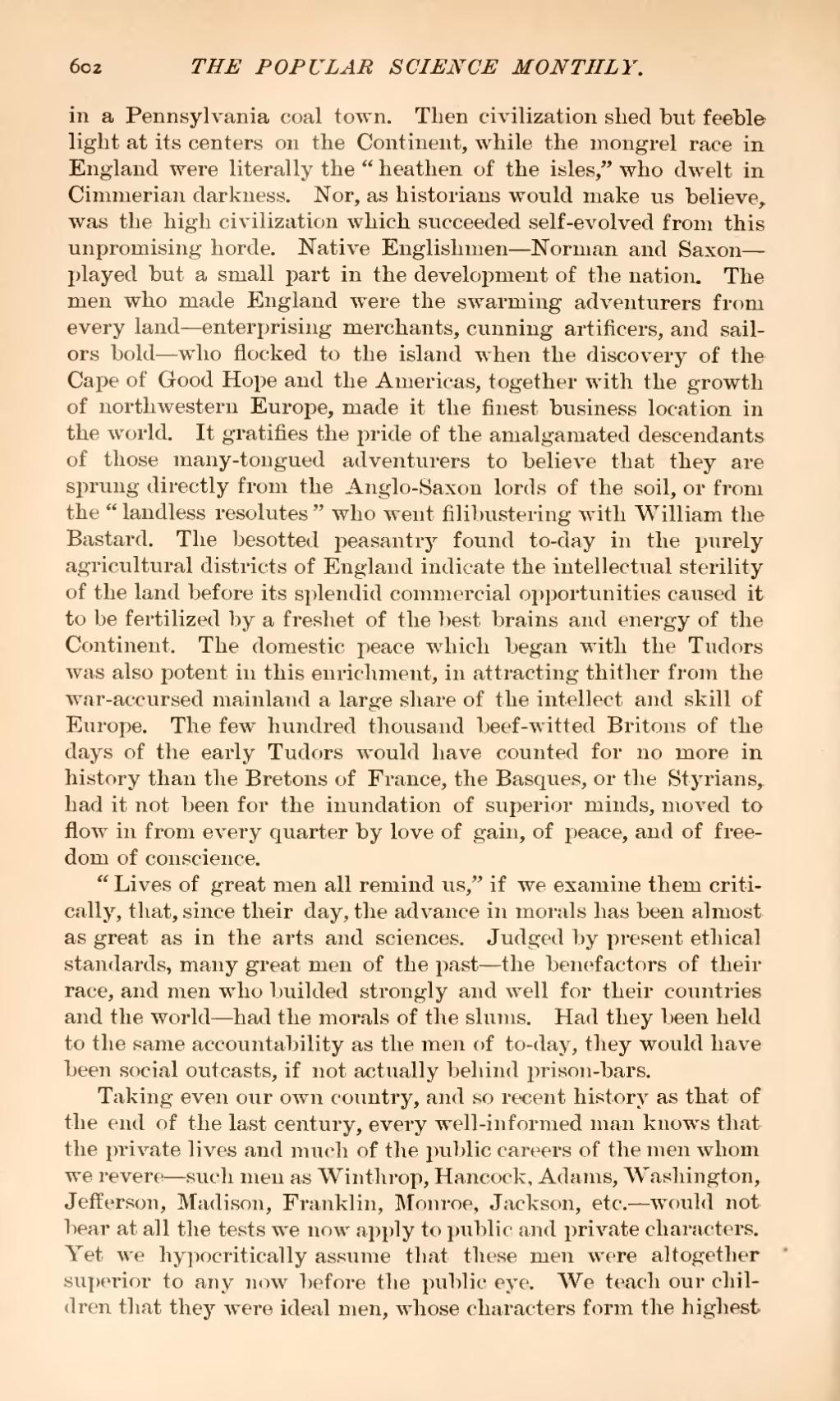in a Pennsylvania coal town. Then civilization shed but feeble light at its centers on the Continent, while the mongrel race in England were literally the "heathen of the isles," who dwelt in Cimmerian darkness. Nor, as historians would make us believe, was the high civilization which succeeded self-evolved from this unpromising horde. Native Englishmen—Norman and Saxon—played but a small part in the development of the nation. The men who made England were the swarming adventurers from every land—enterprising merchants, cunning artificers, and sailors bold—who flocked to the island when the discovery of the Cape of Good Hope and the Americas, together with the growth of northwestern Europe, made it the finest business location in the world. It gratifies the pride of the amalgamated descendants of those many-tongued adventurers to believe that they are sprung directly from the Anglo-Saxon lords of the soil, or from the "landless resolutes" who went filibustering with William the Bastard. The besotted peasantry found to-day in the purely agricultural districts of England indicate the intellectual sterility of the land before its splendid commercial opportunities caused it to be fertilized by a freshet of the best brains and energy of the Continent. The domestic peace which began with the Tudors was also potent in this enrichment, in attracting thither from the war-accursed mainland a large share of the intellect and skill of Europe. The few hundred thousand beef-witted Britons of the days of the early Tudors would have counted for no more in history than the Bretons of France, the Basques, or the Styrians, had it not been for the inundation of superior minds, moved to flow in from every quarter by love of gain, of peace, and of freedom of conscience.
"Lives of great men all remind us," if we examine them critically, that, since their day, the advance in morals has been almost as great as in the arts and sciences. Judged by present ethical standards, many great men of the past—the benefactors of their race, and men who builded strongly and well for their countries and the world—had the morals of the slums. Had they been held to the same accountability as the men of to-day, they would have been social outcasts, if not actually behind prison-bars.
Taking even our own country, and so recent history as that of the end of the last century, every well-informed man knows that the private lives and much of the public careers of the men whom we revere—such men as Winthrop, Hancock, Adams, Washington, Jefferson, Madison, Franklin, Monroe, Jackson, etc.—would not bear at all the tests we now apply to public and private characters. Yet we hypocritically assume that these men were altogether superior to any now before the public eye. We teach our children that they were ideal men, whose characters form the highest

